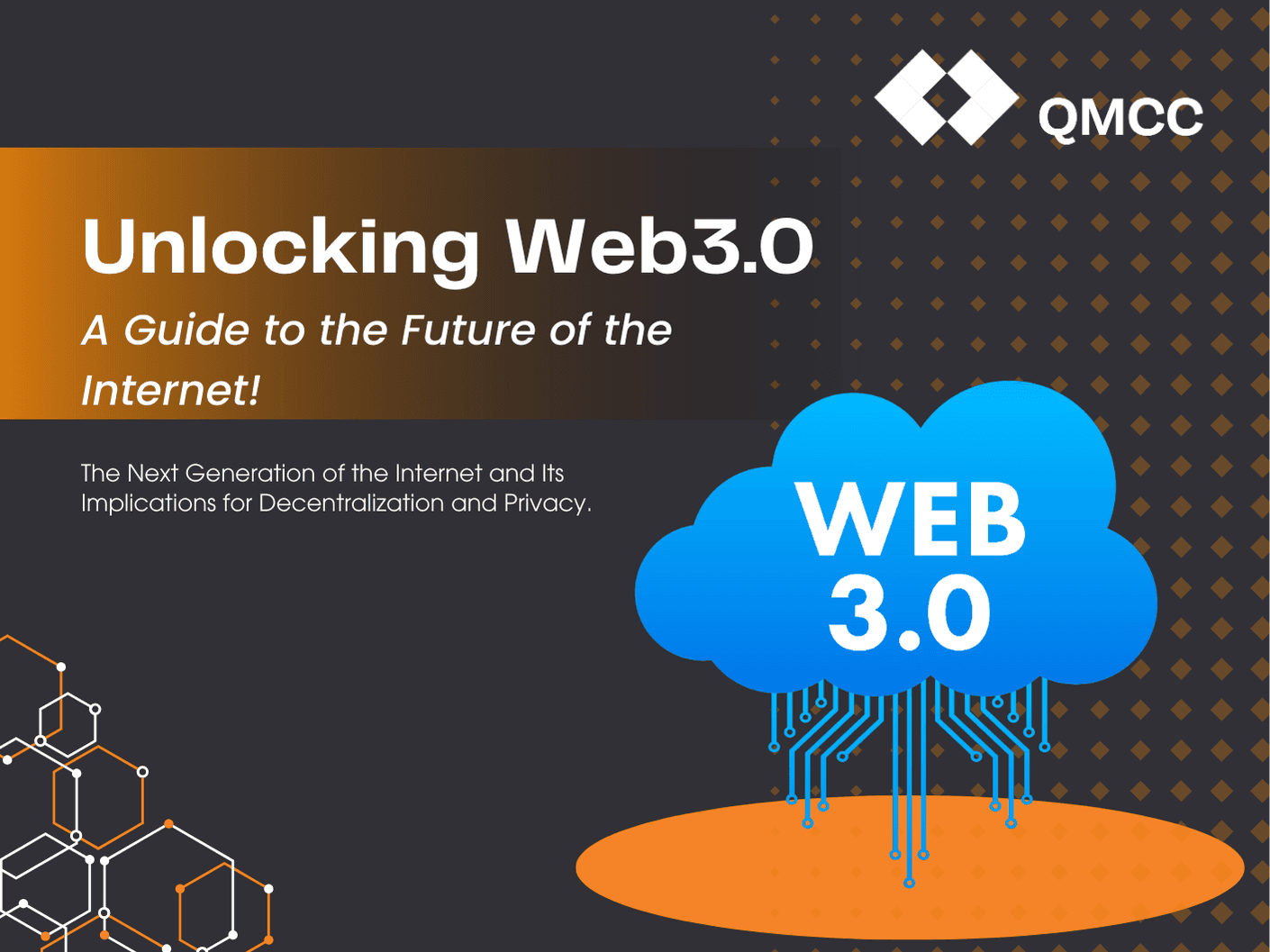
Exploring Web3: Decentralization, Privacy, and the Future of Online Connectivity

Exploring Web3: Decentralization, Privacy, and the Future of Online Connectivity
1. What is Web3? 2. Empowering Users through Decentralization 3. Challenges and Opportunities Ahead 4. Taking Control of Privacy 5. The Journey Ahead in Web 3.0 6. Conclusion: Embracing the Evolution of the Internet
Introduction
The internet is evolving, and we stand at the brink of a new era: Web3. This next generation of the internet promises to be decentralized, secure, and focused on empowering individuals. In this article, we explore Web3, its potential impact on decentralization and privacy, and what it means for the future.
What is Web3?
Web3, often called the decentralized web, represents a vision for the future where control shifts from big companies to individual users. This transformation is made possible by technologies like blockchain, which securely store and manage data without central authority. By decentralizing data, Web3 gives users more autonomy over their digital lives, creating a fairer and more resilient online environment.
Empowering Users through Decentralization
Currently, a few big tech companies control vast amounts of user data, raising concerns about privacy and manipulation. Web3 aims to change this by spreading control across a network of users.
How Web3 empowers you:
- Own Your Data: You decide who can access and use your data.
- More Transparency: Transactions are recorded publicly, building trust.
- Less Censorship: No single entity can control or censor the network.
Challenges and Opportunities Ahead
Web3 has enormous potential, but it's still in early stages. Challenges like scalability, security, and user education need addressing for it to thrive.
Taking Control of Privacy
Imagine an internet where you aren't bombarded with ads based on your browsing history. Web3 promises to make this a reality by putting you in charge of your data.
Your Digital Identity: Web3 introduces self-sovereign identities. It's like having a secure digital ID that only you control, managing your information and sharing it securely when needed.
Secure Data: Blockchain technology secures your data like a digital vault, protected by strong encryption.
Cutting Out the Middlemen: Decentralized apps (dApps) let you interact directly with others, reducing data collection and profiling.
The Journey Ahead in Web 3.0
Web 3.0 is the next step in internet evolution, bringing more advanced capabilities:
- Semantic Web: Data is structured for machines to understand, enhancing search and interaction.
- Natural Language Processing (NLP): Computers understand and generate human language, improving user experience.
- AI and Machine Learning: Personalized services and smart assistants become more intuitive.
- Internet of Things (IoT): Connected devices communicate seamlessly, automating daily tasks.
- Data Interoperability: Easy sharing and integration of data across platforms spur innovation.
Conclusion: Embracing the Evolution of the Internet
Web3 promises a future where you control your digital footprint. Blockchain technology secures your data, and decentralized apps give you direct control over your online interactions. Get ready for an internet that respects your privacy and empowers you.
Introduction
The internet is evolving, and we stand at the brink of a new era: Web3. This next generation of the internet promises to be decentralized, secure, and focused on empowering individuals. In this article, we explore Web3, its potential impact on decentralization and privacy, and what it means for the future.
What is Web3?
Web3, often called the decentralized web, represents a vision for the future where control shifts from big companies to individual users. This transformation is made possible by technologies like blockchain, which securely store and manage data without central authority. By decentralizing data, Web3 gives users more autonomy over their digital lives, creating a fairer and more resilient online environment.
Empowering Users through Decentralization
Currently, a few big tech companies control vast amounts of user data, raising concerns about privacy and manipulation. Web3 aims to change this by spreading control across a network of users.
How Web3 empowers you:
- Own Your Data: You decide who can access and use your data.
- More Transparency: Transactions are recorded publicly, building trust.
- Less Censorship: No single entity can control or censor the network.
Challenges and Opportunities Ahead
Web3 has enormous potential, but it's still in early stages. Challenges like scalability, security, and user education need addressing for it to thrive.
Taking Control of Privacy
Imagine an internet where you aren't bombarded with ads based on your browsing history. Web3 promises to make this a reality by putting you in charge of your data.
Your Digital Identity: Web3 introduces self-sovereign identities. It's like having a secure digital ID that only you control, managing your information and sharing it securely when needed.
Secure Data: Blockchain technology secures your data like a digital vault, protected by strong encryption.
Cutting Out the Middlemen: Decentralized apps (dApps) let you interact directly with others, reducing data collection and profiling.
The Journey Ahead in Web 3.0
Web 3.0 is the next step in internet evolution, bringing more advanced capabilities:
- Semantic Web: Data is structured for machines to understand, enhancing search and interaction.
- Natural Language Processing (NLP): Computers understand and generate human language, improving user experience.
- AI and Machine Learning: Personalized services and smart assistants become more intuitive.
- Internet of Things (IoT): Connected devices communicate seamlessly, automating daily tasks.
- Data Interoperability: Easy sharing and integration of data across platforms spur innovation.
Conclusion: Embracing the Evolution of the Internet
Web3 promises a future where you control your digital footprint. Blockchain technology secures your data, and decentralized apps give you direct control over your online interactions. Get ready for an internet that respects your privacy and empowers you.
1. What is Web3? 2. Empowering Users through Decentralization 3. Challenges and Opportunities Ahead 4. Taking Control of Privacy 5. The Journey Ahead in Web 3.0 6. Conclusion: Embracing the Evolution of the Internet
Introduction
The internet is evolving, and we stand at the brink of a new era: Web3. This next generation of the internet promises to be decentralized, secure, and focused on empowering individuals. In this article, we explore Web3, its potential impact on decentralization and privacy, and what it means for the future.
What is Web3?
Web3, often called the decentralized web, represents a vision for the future where control shifts from big companies to individual users. This transformation is made possible by technologies like blockchain, which securely store and manage data without central authority. By decentralizing data, Web3 gives users more autonomy over their digital lives, creating a fairer and more resilient online environment.
Empowering Users through Decentralization
Currently, a few big tech companies control vast amounts of user data, raising concerns about privacy and manipulation. Web3 aims to change this by spreading control across a network of users.
How Web3 empowers you:
- Own Your Data: You decide who can access and use your data.
- More Transparency: Transactions are recorded publicly, building trust.
- Less Censorship: No single entity can control or censor the network.
Challenges and Opportunities Ahead
Web3 has enormous potential, but it's still in early stages. Challenges like scalability, security, and user education need addressing for it to thrive.
Taking Control of Privacy
Imagine an internet where you aren't bombarded with ads based on your browsing history. Web3 promises to make this a reality by putting you in charge of your data.
Your Digital Identity: Web3 introduces self-sovereign identities. It's like having a secure digital ID that only you control, managing your information and sharing it securely when needed.
Secure Data: Blockchain technology secures your data like a digital vault, protected by strong encryption.
Cutting Out the Middlemen: Decentralized apps (dApps) let you interact directly with others, reducing data collection and profiling.
The Journey Ahead in Web 3.0
Web 3.0 is the next step in internet evolution, bringing more advanced capabilities:
- Semantic Web: Data is structured for machines to understand, enhancing search and interaction.
- Natural Language Processing (NLP): Computers understand and generate human language, improving user experience.
- AI and Machine Learning: Personalized services and smart assistants become more intuitive.
- Internet of Things (IoT): Connected devices communicate seamlessly, automating daily tasks.
- Data Interoperability: Easy sharing and integration of data across platforms spur innovation.
Conclusion: Embracing the Evolution of the Internet
Web3 promises a future where you control your digital footprint. Blockchain technology secures your data, and decentralized apps give you direct control over your online interactions. Get ready for an internet that respects your privacy and empowers you.
Other Blogs
Other Blogs
Check our other project Blogs with useful insight and information for your businesses
Other Blogs
Other Blogs
Check our other project Blogs with useful insight and information for your businesses
Other Blogs
Other Blogs
Check our other project Blogs with useful insight and information for your businesses


